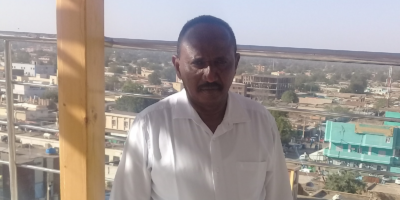UN experts have expressed grave concern about the pre-trial arrest and detention by the Egyptian government of prominent human rights activists and trade union leaders.
Concerns about the arrests and terrorism charges against activists:
In a letter sent by the UN experts to the Egyptian government, they expressed their grave concern about the arrests and prolonged pre-trial detention, as well as the terrorism-related charges against human rights defenders (Ahmed Tammam, Haytham Mohamadein, Hassan Barbary, Alaa Essam and Khalil Rizk), which appear to be directly related to the legitimate exercise of their human rights, and their work to defend human beings.
The experts have also expressed serious concerns regarding allegations of physical abuse, which may amount to cruel, inhuman or degrading treatment or punishment, or even torture and forced disappearances, and their deep concern at the failure to conduct effective investigations into these incidents, and to prosecute and punish those responsible.
In their letter, the UN experts pointed out that the above-mentioned persons, in particular, have been unable to communicate with their families and lawyers since the Egyptian state began implementing precautionary measures due to the outbreak of the coronavirus (COVID-19) inside prisons, in March 2020. They also noted that the period of pre-trial detention has been extended in several cases without legal basis or individual judicial review.
The experts have warned the Egyptian government that even in cases where visiting regulations are restricted for public health reasons, they should still provide adequate alternative compensation means for detainees to maintain contact with their families and the outside world.
In addition, defendants in pretrial detention must also be able to challenge the legality of their detention before a judicial authority or to release them pending procedures, especially when the conditions of detention do not guarantee the standard social distance required to prevent the spread of the coronavirus (COVID-19).
Fears of the counter-terrorism legislation and forming associations in Egypt:
In the same context, the experts have expressed serious concerns about applying the terrorism-related charges that allow pre-trial detention, restricting human rights, and targeting those who seek to promote and protect human rights in Egypt, reminding the Egyptian government that pre-trial detention should only be used as a precautionary measure aimed at avoiding further harm or obstruction of justice, and should not be used as a punitive tool.
The experts added that they are concerned that the charges faced by these activists seem related to their work to protect, promote and exercise their rights to freedom of forming associations, noting that states must respect the rights of all workers to form and join unions and the state has a responsibility to respect and guarantee the right of everyone to exercise their freedom of expression, peaceful protests, and forming associations.
In their letter, the experts have warned against the general atmosphere of NGO’s, human rights defenders, and journalists in Egypt, given the extensive use of counter-terrorism legislation to target those who express opposition.
Experts’ demands from the Egyptian government:
The experts called on the Egyptian government to provide detailed information on the legal and factual basis for the arrests, the continued pre-trial detention, and the charges against the individuals mentioned in the letter, and to explain their compliance with the standards of international human rights law.
They also demanded it to provide information on how these individuals are treated in accordance with United Nations Security Council Resolution 1373, and a strict understanding of the definition of terrorism as elucidated by the standards of international law, including -but not limited to- the United Nations Security Council Resolution 1566 (2004).
The experts also called on the Egyptian government to provide detailed information on the alternative methods put in place for detainees to maintain frequent and free communication with their families and with the outside world, and on how the authorities have facilitated and encouraged these contacts.
In addition to the steps taken to ensure the provision of a fair trial to the individuals mentioned in this letter, in light of international human rights standards, and to enable their lawyers to access all the evidence presented against them, and that such guarantees gave been maintained during the prevailing public health emergency.
The experts stressed the need to provide the details and the results of any investigation that may have been carried out, or which are foreseen, with regard to the torture allegations, and other cruel, inhuman or degrading treatment or punishment, the results of any investigation against Alaa Essam, and the enforced disappearance of Khalil Rizkk and Haytham Mohamadein to ensure trial and redress, and in the event that no such measures have been taken, the experts called on the Egyptian government to clarify the extent of its compliance with Egypt’s obligations towards human rights.
In the conclusion of their letter, the experts called on the Egyptian government to provide information on the measures taken to prevent the spread of the coronavirus (COVID-19) in pre-trial detention sites, while providing details, in particular, on measures taken to monitor and protect the physical and mental wellbeing of the individuals mentioned in the letter such as preventive measures to reduce their risks vis-a-vis COVID-19, including considering alternative measures to detention, such as their release pending proceedings.





